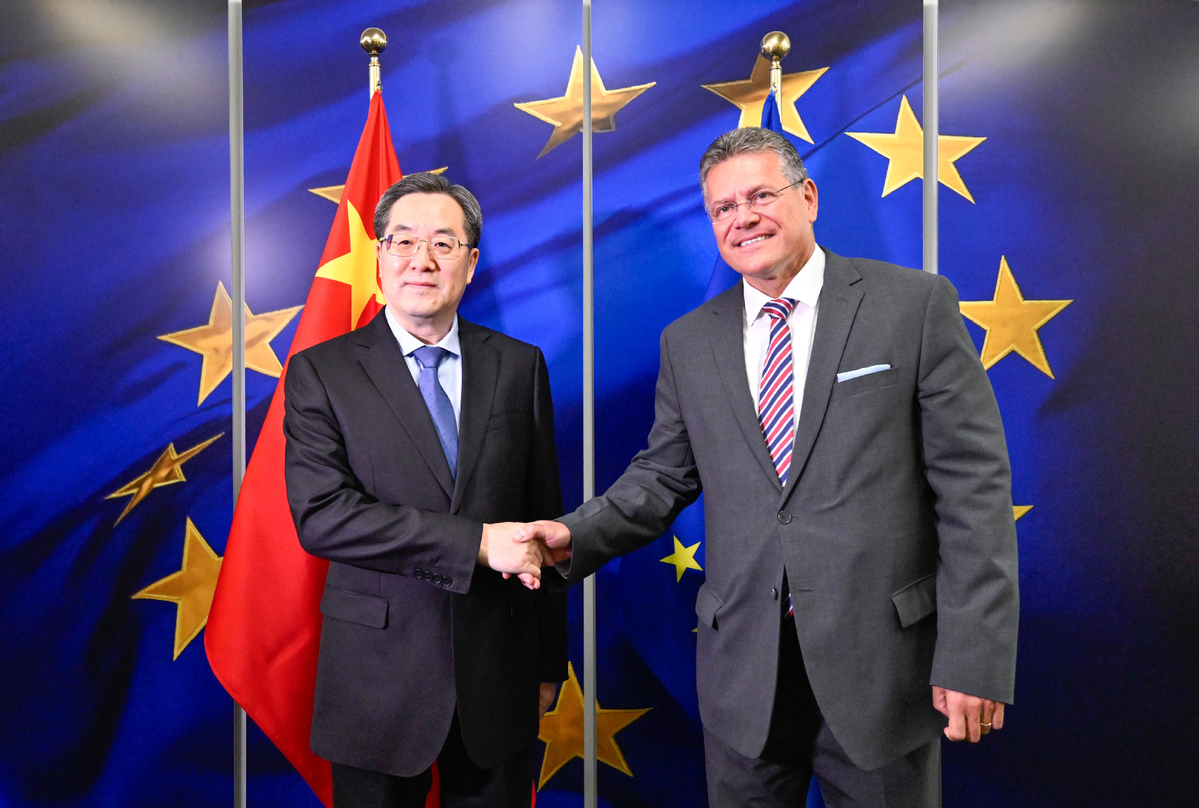(Source:China Daily,2024-06-19)

China and the European Union underlined their shared commitment to deepening green cooperation during the latest round on Tuesday of a high-level dialogue on the environment and climate, with analysts urging both sides to properly handle differences to ensure that bilateral collaboration is not undermined by protectionism.
Vice-Premier Ding Xuexiang and Executive Vice-President of the European Commission Maros Sefcovic co-chaired the fifth High-Level Environment and Climate Dialogue between China and the EU at the EU's headquarters in Brussels. The dialogue was first held in 2020.
The vice-premier noted that China and the EU share extensive common interests and broad space for cooperation in green transformation, saying that both sides should fully leverage the high-level dialogue mechanism, seek common ground while setting aside differences, and deepen the China-EU green partnership.
We need to tap the potential for cooperation in key areas and strengthen mutual learning in areas such as green energy, green and low-carbon technologies, plastic pollution control, and chemical environmental management, Ding said.
He also stressed that the EU's plan to impose additional duties on imports of Chinese electric vehicles is typical protectionism.
The European Commission has said it will impose extra duties of up to 38.1 percent on imported Chinese-made electric vehicles starting in July.
This is not conducive to the green transformation of the EU and would undermine global cooperation on climate change, Ding told Sefcovic.
Ding expressed his hope that the EU will avoid economic and trade friction that could delay the green transition process, and said that green barriers that would interfere with normal economic and trade cooperation should not be established.
The two sides should resolve trade friction through dialogue and consultation, Ding said, adding that China is firm in its resolve to safeguard its legitimate and lawful interests.
Jian Junbo, deputy director of the Center for China-Europe Relations at Fudan University's Institute of International Studies, said the additional tariffs imposed on Chinese-made EVs is a negative approach taken by the EU.
Such a practice reflects the EU's anxiety between its green development aspirations and its economic protectionist measures, Jian said, adding that it will have negative effects on green cooperation between China and the EU.
Sefcovic said the EU is willing to deepen cooperation with China in areas such as tackling climate change and protecting ecology, and to lead global environmental and climate governance.
He noted that the EU attaches great importance to the development of the electric vehicle industry and is willing to properly handle differences with China through dialogue.
Jian, of the Center for China-Europe Relations, said that the high-level communication mechanism between China and the EU has demonstrated the strong will of both sides and can play a leading role in bilateral environment and climate cooperation.
In addition to intergovernmental dialogue and coordination on specific policies, broader participation from businesses is also essential in deepening bilateral cooperation, Jian said.
More institutions and companies should be involved in bilateral dialogues and jointly make standards for the green industry, he added.
Beyond bilateral dialogue and cooperation, China and the EU, which are pivotal leaders and driving forces in global green development, have substantial room for collaboration involving multilateral platforms, such as the United Nations, he said.
The two sides should intensify exchanges and strengthen coordination on the principles, objectives and financing of climate change governance, he added.






